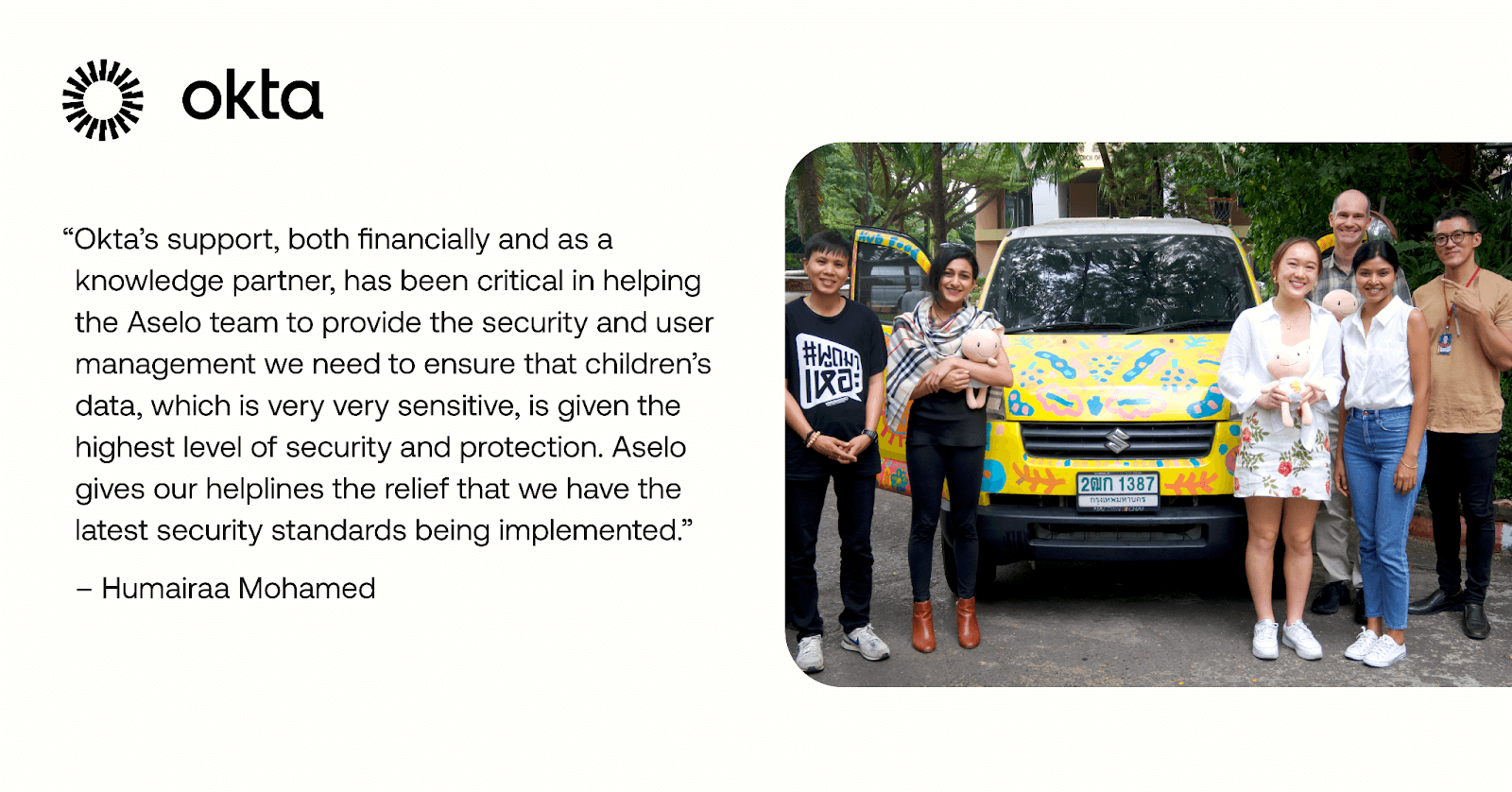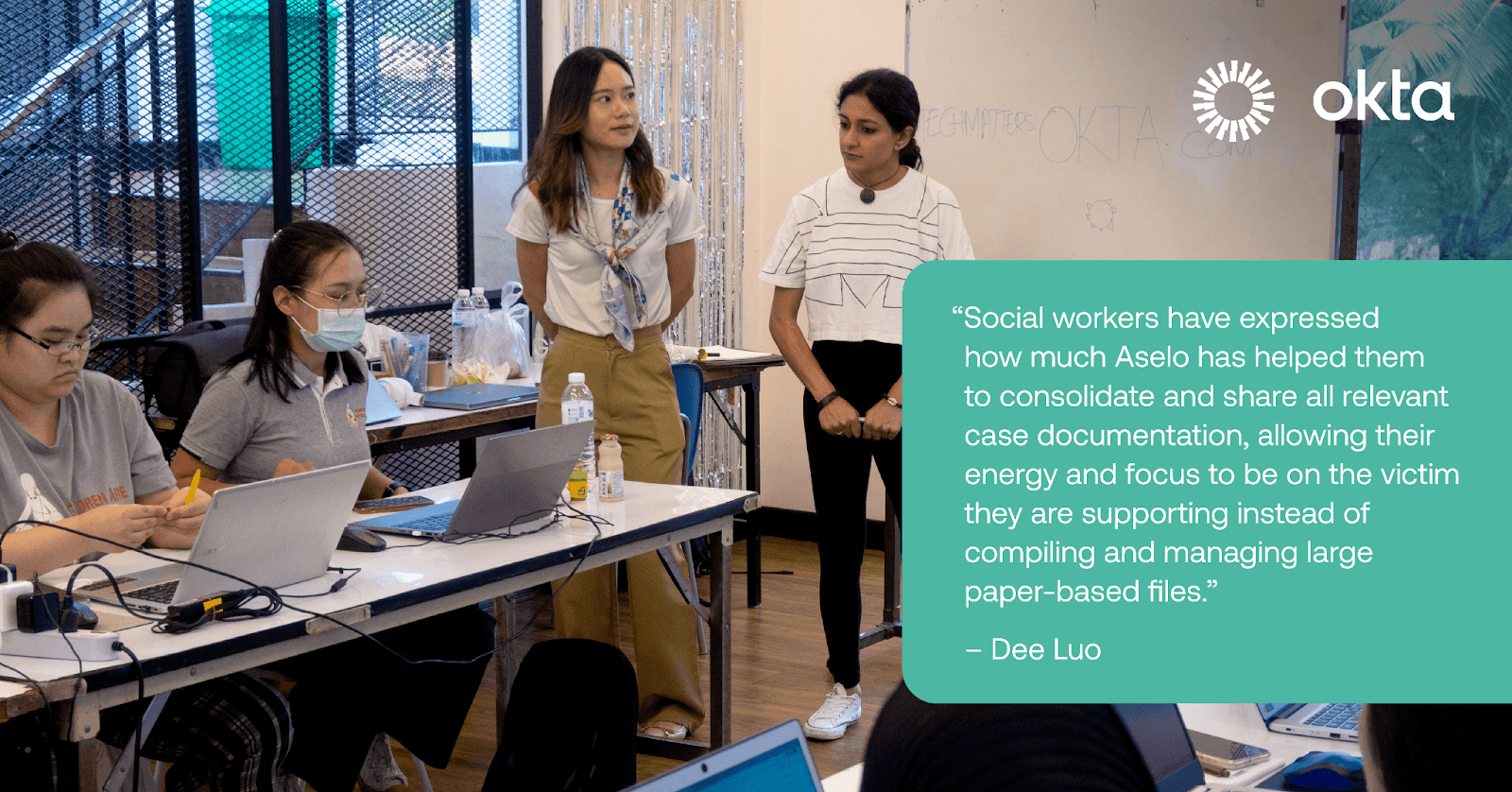Answering children in crisis with cloud technology
Child helplines worldwide are inundated with 30 million calls per year, and millions of calls go unanswered. That puts in perspective the scale of the challenge facing the nonprofits on the other side of the phone. Better technology and access to data are crucial, but the first step is for social change leaders to take stock of the tools they need and understand what technology can and can’t do for them.
Software helps for-profit organizations develop more effective and efficient operations. But even with funding and support, nonprofits rarely have access to the digital solutions they require to meet their unique needs. As a result, many build customized, proprietary software that tends to be substandard — and still expensive. On average, nonprofits are 15 years behind on technology innovation compared to their counterparts in business.
Established to address this disparity, Tech Matters, a Silicon Valley nonprofit tech company, helps international global organizations adopt solutions that will advance their missions and avoid technologies that won’t. It isn’t interested in building one-off tech projects; instead, it wants to help organizations create affordable shared platforms that support social causes.
Tech Matters has embarked on long-term projects like Aselo, which provides children with crisis support services via helplines. Today’s young people prefer to communicate by text message and through channels like Facebook Messenger and WhatsApp, which aren’t compatible with many helplines’ homegrown solutions. This creates a growing gap that prevents millions of youth from getting the help they need.

Tech Matters helps nonprofits and non-governmental organizations create affordable shared platforms that advance their missions.
To found Aselo, Tech Matters worked with Child Helpline International (CHI) to develop a modern, open-source contact center platform. Aselo was built on Twilio’s Flex technology, which helps people in crisis connect to helplines through their preferred communication channel — from phone calls and texting to social media and web chat. It also enables counselors to use a simplified, streamlined suite of tools for handling and documenting cases.
CHI already runs 167 child helplines across 140 countries. But Aselo’s technology is expected to help 100 million more children every year, and Okta for Good’s Innovation Lab is proud to work with them to serve that goal.
The benefits of an open-source approach
Aselo’s cloud-based software solution must be open source to deliver change for children worldwide. This approach enables technology to be tweaked and enhanced by users, which means it can be adapted to every nonprofit’s unique use cases.
When Aselo develops and releases a new feature for one helpline, it automatically becomes available to all contracted helplines in its network. Nonprofits worldwide can benefit from new releases without committing time, money, and resources to develop their own solutions. For example, Aselo is co-designing a platform with Kids Help Phone (KHP), Canada’s only free, 24/7, e-mental health service, planned for release in 2023. KHP has requested specific enhancements, understanding that the improvements will benefit additional international helplines in the future.
The critical role of Identity
Open-source cloud solutions benefit nonprofits by being simple, powerful, easy to maintain, and cost-effective. However, they also store data on internet servers, which can leave the personal information of clients, donors, and users vulnerable to hackers. Furthermore, Aselo and other child helplines capture and store sensitive child data that must be kept secure.

The Innovation Lab supports Tech Matters’ efforts toward Aselo, an open-source contact center platform for children's helplines that allows kids in crisis to connect through their preferred communication channel and streamlines case management for counselors.
The growing threat of cyber attacks and data breaches means organizations have to take security very seriously — but for nonprofits, security has traditionally been viewed as overhead, with the core mission taking priority. But a shared open-source platform has a better capacity to incorporate advanced security features than custom, one-off software solutions.
The Aselo platform was co-developed with ten national child helplines. This helped it to incorporate the crisis services that helplines needed the most, including database and case management, dashboards and reporting, security and authentication protocols, and user management.
Tech Matters and Aselo are committed to driving the digitization and modernization of these helplines with identity through their participation in Okta For Good’s Innovation Lab. Identity-based solutions are critical to nonprofits like Aselo because they bolster security protections against cyber criminals and enhance data protection, while enabling seamless access experiences for users.
Spreading child helplines wider across the globe
For its time with the Innovation Lab, Aselo set an ambitious goal of developing the infrastructure needed to scale the platform, and rapidly deploy new instances of the solution to helplines with minimal development resources. Already, it’s exceeded expectations by launching six different helplines in Thailand, Malta, Hungary, Canada, Chile, and Zimbabwe within six months. It also recently worked on a coordinated response with several European countries to address the Ukrainian refugee crisis.
These achievements have been executed and operated by the Aselo team, who’ve helped to customize and implement the solution for multiple international helplines simultaneously. That’s despite considerable challenges, such as working with telecoms across several geographies and countries with unstable or insecure governments and infrastructure.
Aselo launched helplines in Brazil, Ethiopia, Malawi, South Africa, and Zambia before expanding into Colombia, India, Jamaica, and the Philippines. And it’s working with helplines across Asia, Europe, Latin America, Africa, and North America to customize the technology for their requirements. It’s critical to build a helpline solution that can be deployed quickly to respond to community needs, and a scalable Identity solution like Okta supports that.
But that’s not the end of Aselo and Tech Matters’ roadmap. The platform has been translated into six languages and the pre-engagement chatbot includes 12 languages, while support is being developed for email, Telegram, and voice notes. And at CHI’s annual conference in Sweden, the company had a chance to showcase its technology, and demonstrate to the world how Aselo can connect to even more helplines globally to ensure no crisis call goes unanswered in the future.
See Tech Matter’s progress with the Innovation Lab by the numbers.

